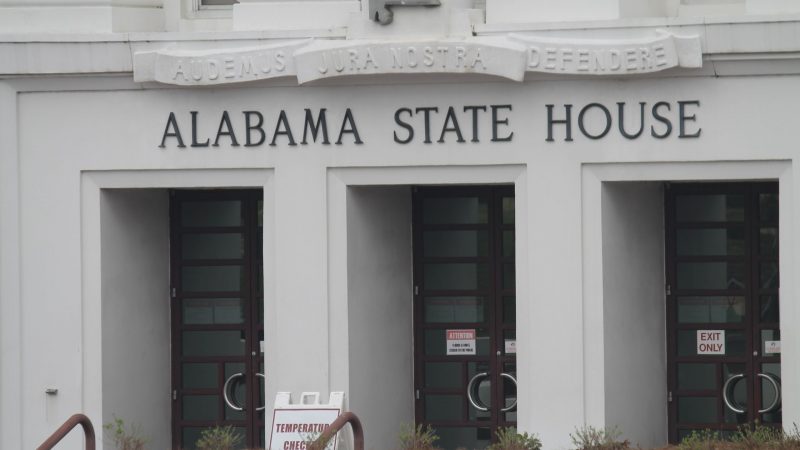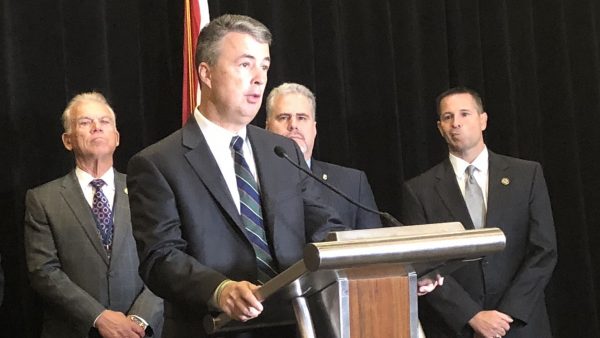Southern Environmentalism
When Forbes Magazine ranked states by their “greenness” the usual suspects topped the list – Vermont, Oregon, and Washington, all progressive states known for their environmental movements. Seven out of the ten “least green” states were in the South, the land of coal mines and timber plots. But as WBHM’s Tanya Ott reports there’s a growing environmental movement down south and some of its members might surprise you.
There’s a vacant lot in downtown Birmingham, Alabama. It’s full of overgrown weeds, surrounded by warehouses that don’t look like they’ve been used in years. There’s really not a lot going on here. But James Smith sees something entirely different. He’s president of an international company called Green Building Focus. When he looks at this lot, he sees an uptapped market. He wants to build an eco-industrial park here.
“There are many companies out there in other parts of the country who want to have access to the southeastern market, they realize it’s one of the fastest growing markets in the country. And if you draw a 500 mile radius around Birmingham you hit every major developing area in the southeast. It’s really the ideal location geographically to become a regional manufacturing hub for sustainable products.”
Alabama, a green hub of the south? This is the land of mega-churches and Republicans, not environmentalists.
“The federal trend over the last 10 years, longer than that, no doubt has been if you’re a Republican you can’t be an environmentalist.”
That’s Gil Rogers. He’s an attorney with the Southern Environmental Law Center. He says nationally republicans get a bad rap for denying climate change and trying to roll back the endangered species list. But at the state and local level, things are often different in the south.
“We have a lot of republican champions, as an example, in the Georgia legislature that are republicans in terms of wanting lower taxes and less government intrusion into a lot of aspects of life. But then will go and realize that there needs to be more done in the way of environmental protection of water resources or of air quality. That those have real public health impacts.”
Rogers says these leaders often have strong ties their own piece of nature – maybe a stretch of land or a river.
“I’m a tree hugging, liberal – I mean a tree hugging conservative republican!Which I know some people may say is an oxymoron. But…”
That’s Charlie Houser. He’s mayor of Magnolia Springs, Alabama. It’s a small town of about 8,000 residents down by Mobile. Magnolia Springs is just as lovely as its name. Huge live oaks canopy the main street. But the rest action is on the river.
Houser fires up his pontoon boat to give me a tour. Magnolia Springs is the only place in the U.S. with full-time mail delivery by boat.
“We have had flooding where you have to call somebody and say, I got your bill but I couldn’t read it cause it was wet!”
Houser grew up here. When he moved back to retire, he worried about what he saw.
“I didn’t see the sea grass. We lost blue crabs, we lost pike.”
He blames agricultural runoff full of chemicals. So, when the town incorporated four years ago one of the first things mayor Houser and the mostly republican town council did was pass some of the toughest land use rules in the south. All new buildings have to set back 75 feet from the river. New subdivisions have to keep their run-off on site. The town has spent more than a quarter million dollars on a comprehensive plan and creating an Environmental Protection Committee. And it’s working, says councileman Ken Underwood.
“We started having brown pelicans showing back up. And today all the pelicans you see around, that’s a wonderful site. That’s a sign that the river is in better shape on a chemical basis. Look at the cormorants up in the treetops there. Beautiful site!”
Beautiful, and profitable. Today, Magnolia Springs economic engine is tourism and the revitalized river plays a big role in that.
Gil Rogers, with the Southern Environmental Law Center, says there are still big environmental threats in the south: coal mining, timber, and other industries. But he’s optimistic.
“People have started to recognize that there’re some real threats from population growth, poor development patterns. So I think there is a movement here going on and it’s unique to the south, I think, in a lot of ways.”
Certainly, it’s creating some interesting alliances such as environmentalists teaming up with hunters. It’s a small sign that conservative and conservation are little closer than they once were in the South.
How food stamps could play a key role in fixing Jackson’s broken water system
JXN Water's affordability plan aims to raise much-needed revenue while offering discounts to customers in need, but it is currently tied up in court.
Alabama mine cited for federal safety violations since home explosion led to grandfather’s death, grandson’s injuries
Following a home explosion that killed one and critically injured another, residents want to know more about the mine under their community. So far, their questions have largely gone unanswered.
Crawfish prices are finally dropping, but farmers and fishers are still struggling
Last year’s devastating drought in Louisiana killed off large crops of crawfish, leading to a tough season for farmers, fishers and seafood lovers.
Lawmakers consider medical cannabis revamp
It’s been three years since Alabama lawmakers passed legislation establishing a system to govern medical cannabis in the state, yet not one prescription for the drug has been filled. The rollout has been delayed by lawsuits and conflict over the licensing process.
Man arrested in connection with device that exploded outside Alabama attorney general’s office
Kyle Benjamin Douglas Calvert, 26, of Irondale, Alabama, was arrested Wednesday on charges of malicious use of an explosive and possession of an unregistered destructive device, the U.S. attorney’s office said.
For some Gulf South schools, a March Madness loss can still be a win off the court
Making it into the NCAA Tournament can translate to boosts in student enrollment, athletic involvement, merchandise sales and more for participating schools.







